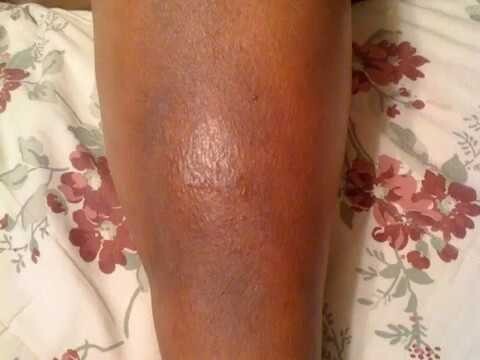Cellulitis is a bacterial infection of the skin, most likely to affect the lower legs.
Bacteria that normally live on your skin, most commonly Streptococcus, Staphylococcus (Staphylococcus aureus) enter your body through a cut, burn, scrape, or through skin conditions like eczema or fungal infection of the foot; or another open sore. Once your skin is infected, the bacteria can spread to your lymph nodes and bloodstream, where they can cause a life-threatening infection called sepsis.
A person is more likely to develop this infection if one has one or more of the following conditions:
- a weakened immune system from a disease or from medical treatment (ex. Chemotherapy)
- chronic illnesses such as diabetes
- skin conditions such as eczema or shingles
- obesity
Symptoms of Cellulitis
- Swelling and Redness over a large area
- Pain and Tenderness
- Fever
- Blisters over the skin
- Dimples on the Skin (Pitting oedema)
Diagnosing Cellulitis
Take the patient to the doctor right away, if you observe a large area of red swollen skin and fever, especially if you have diabetes or a weakened immune system. Cellulitis is a potentially serious condition that needs to be treated as soon as possible.
Treating Cellulitis
Cellulitis is treated with an oral antibiotic for 10 to 14 days. Symptoms should improve within one to two days but ensure that the patient completes the entire course of medicines. Stopping the medication too soon allows the most potent bacteria to survive, contributing to the development of antibiotic-resistant superbugs and setting up the possibility that your infection will come roaring back. If the patient doesn’t feel better or if the symptoms get worse while on oral antibiotics, the doctor may stronger intravenous (IV) antibiotics in a hospital. Severe cases may be treated with IV antibiotics from the start.
When cellulitis is treated early, it usually clears up completely without causing any long-term complications. However, once a person has had cellulitis, he/she is more likely to develop it again.
To prevent a future occurrence, keep your skin clean, and, if you have any wounds, be sure to disinfect and cover them properly

